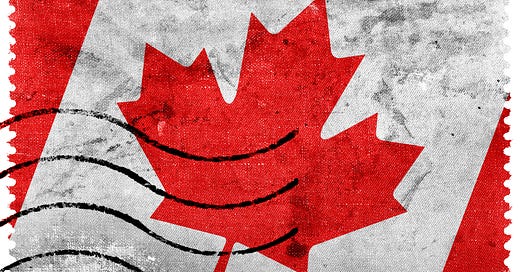Near the end of Gabriel García Márquez landmark novel, One Hundred Years of Solitude, Macondo, the village in which much of the story unfolds, is swept away in a storm, a whirlwind that erases time and place.
Last week, a firestorm threatened to eradicate Flin Flon, Manitoba the mining town where I was born. As I write, the danger has not passed. The fire still nibbles at the edges of the town, and all residents who live there and in surrounding communities have fled. People in nearby Denare Beach have watched the fire consume their homes in images from the security cameras they had installed on them. My sister’s home on a lake south of town, a gathering place for family, is still threatened.
Of the shifting winds and the plight of those forced to flee, one evacuee told the CBC, "It's Mother Nature, what can you do?"
But let’s not blame nature for what we have caused. When I was growing up in Flin Flon and for many years after, no fires threatened the town. Today they are almost an annual occurrence. Summertime temperatures rarely rose above the mid-20s C. The week the fire approached, they hovered around 30 (86 F). The mines and smelters that fed the area’s prosperity for decades, though now mostly closed, contributed to the reckoning that has come upon the people who live there, and everywhere. It is a bitter irony.
Where we live is a repository of memories, and those that stay with me—the oddities and uniqueness of my hometown—are such that I have called it my Macondo. Flin Flon’s name alone suggests a strangeness that might only be conceived in fiction, and indeed it’s what happened. But there’s much more to it than that.
Someday, Flin Flon might be swept away, if not this time, then another, in a distant future, I hope.
Post Script: Several major wildfires are currently burning across Canada's central and western provinces, with 208 active fires as of Monday, June 2—including 107 that are completely out of control. British Columbia leads with 74 active fires, followed by Alberta with 56, while Manitoba, Ontario, and Saskatchewan also have significant fire activity. Tens of thousands of citizens have been evacuated and many have lost their homes. The smoke from these fires is drifting south across the U.S. border, significantly degrading air quality in multiple American cities. Though wildfires occur annually in Canada, climate change has intensified their range and severity in recent years.
Bryan is a former Montreal Gazette editor. Still writing, still editing. Check out his Substack Life Sentences.





Thank you for this personal account of what's happening out West. My heart goes out to you and all those whose lives and homes are threatened. I can't begin to imagine your fear and worry. I'm also thinking about everyone fighting the fires and supporting the displaced, grateful you are there to help.
Thank you, Brian, for this honest and thoughtful reflection on what is largely causing the catastrophic, unprecedented fires plaquing parts of our country (and the world) in recent years, i.e., the unrelenting and increasing burning of fossil fuels. I am sorry for the preventable suffering happening in your place of birth. It must be very hard to watch.